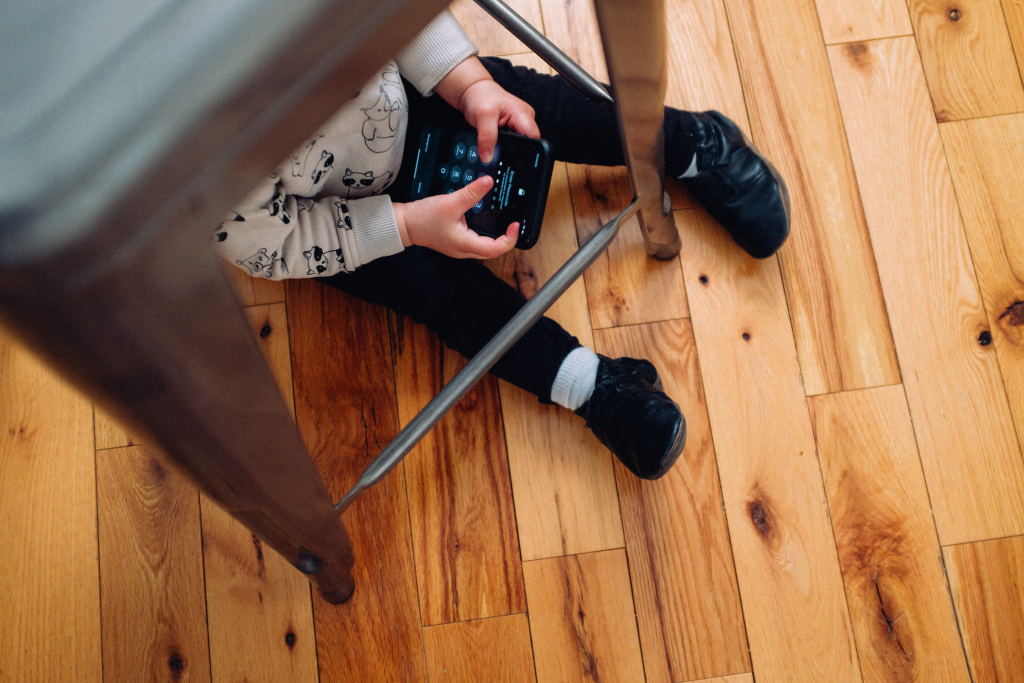Parenting in the screen age: I want my kids to feel loneliness and boredom | ScreenHub Australia
[ad_1]
We were those parents. The anti-screen parents. Our eldest child, now nine, wasn’t parked in front of a screen until she was three, despite various older rellies shoving iPhones in her face at every opportunity. When we did switch the TV on – I remember the occasion with the same clarity my parents remembered the moon landing – it was to watch The Snowman, a gentle, near-silent half hour of seasonal animation from 1984. Further viewing was carefully curated towards the old and the slow and away from the hypercolour frenetics of modern kids telly.
We were more lax with child two but still did what we could to introduce kids to screens in much the same way we introduced them to the ocean. When they were ready, when it was calm and when they were supervised.
And then the pandemic hit. With the four of us stuck at home, parents working more-or-less full-time from the front room, kids learning from the kitchen table, screens became less of a sometimes food and more of a staple. The kids did a few hours of school via laptop and iPad, then watched a couple of hours of vaguely educational telly and, if they were lucky, something else in the afternoon. Even exercise became mediated via the screen. We all worked out with Joe Wicks, the girls did yoga with a YouTube guru and, when ballet lessons started again, it was via Zoom.
Post-lockdown
What happened to the kids post-lockdown? Well, they seem fine. The eldest still prefers books and days pass without either of them switching the TV on. They use iPads at school but only rarely seem interested at home. The youngest is more screen-focused, but that might be personality more than the relentless exposure of 2020. Maybe those early analogue years helped, or maybe they didn’t matter in the end. I suspect that, like many children of their generation, there have been mental health repercussions which may actually have been worse if they hadn’t been able to stay in touch with friends and family via FaceTime.
Maybe the kids are alright. I’m not so sure about the rest of us.
What has changed in our household since the start of the pandemic is an awareness of how much time its adults spend squinting at devices. Our terror that our sprogs would become digital junkies has proved unfounded. But a shift to working from home means that the kids see us on computers and phones throughout most of their waking hours. Screens are just what we do. At times, I catch myself sticking the kids in front of one screen so I can spend more time with my own.
I worry what this means is that, despite being around more than ever, we are very rarely wholly in the same room. We’re composing emails, replying to texts, or trying to keep the bedroom door shut so we can join a Teams meeting. At any moment, even on a walk to the beach, a notification threatens to whisk one or both of us away. The increasingly porous boundary between work and home has made it almost impossible to ever be in one place at once.
It’s a pretty depressing portrait of adulthood. I don’t want my kids remembering me as always having one foot – or half my brain – out the door.
The world … out there
Research has shown that the presence of a smartphone on your desk is a distraction, even when switched off. It’s a reminder that the outside world is going on without us, like a party (or important work function) we know we should be attending. Some insist that our devices are robbing us of our ability to focus. Anecdotally, this feels true — I have sometimes had to leave my phone in a different room to pay full attention to a film and, well, don’t we all feel a bit more vague and fuzzy than we used to?

Johann Hari’s recent book Stolen Focus builds on those anxieties to argue that our attention spans have been destroyed by our machines of infinite distraction. Despite a blitzkrieg of attention from the media, the book has been critiqued – most notably by journalist Matthew Sweet – as being ‘irresponsible, inaccurate and dangerous’. The foundational fact of the book — that teenagers can only focus on a task for 65 seconds — was described by Sweet as being, succinctly, ‘bullshit’ and, more extensively, a ‘misinterpretation of the result of a paper he seems not to have even read’.
Moral panic
Maybe we can take comfort in the idea that our anxieties around technology are simply another kind of moral panic, based on false premises. I love the flexibility that screens allow. I love working from home — I spent ten years doing so before the pandemic and they were the best years of my career. I have spent most of career writing about things that are enjoyed via screens. I love how easy it is now to find a song, an old film, a forgotten TV show or advert and share these things with friends, family and my Twitter feed.
But I also miss being present. I miss being pinned down to a single location and a single conversation with no immediate chance of escape. One of the gifts I want to pass on to my kids is the chance to experience loneliness and boredom in a world that is always ready to distract you from both.
Technoconference
Even if our phones aren’t eroding our own little grey cells, there may still be having a deleterious effect on our parenting. Writing about ‘technoference‘ – where a child’s developmental relationship with its parents is interrupted by a parent’s addictive relationship with their device – educator Erika Christakis wrote that the answer is for parents to do less. To be less available to the digital world when we’re parenting. To be with the people we’re with. Christakis was writing in 2018. In our new post-COVID world, many of us are finding that easier said than done.
What I worry about, post-lockdown, isn’t that life has become too difficult but too easy. It is too easy to step out of the physical world and chase something more stimulating. The difficulty is staying in the room when things aren’t stimulating. When that other world is calling. How do we sit with a bored and boring child, draw on our tired and limited resources and, ideally, making that child feel there is nowhere we’d rather be?
That’s the difficult part. And yet, to me, that difficulty seems to be the point.
[ad_2]
Source link




